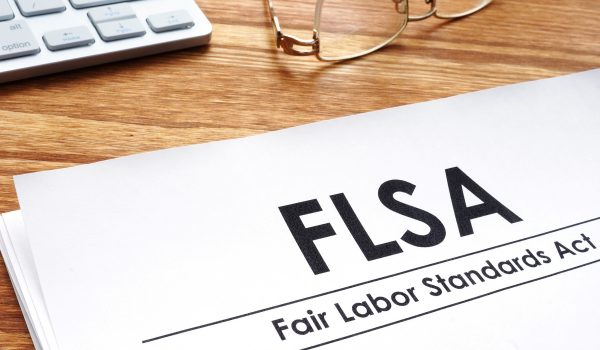The Department of Labor (“DOL”) recently announced a proposed rule to amend and clarify the regulations governing regular rate requirements under the Fair Labor Standards Act (“FLSA”).
Generally, the FLSA requires employers to pay non-exempt employees overtime pay of at least one and one-half times the regular rate for hours worked in excess of 40 hours per workweek. Understanding what is included in the regular rate is critical in determining how much overtime compensation a non-exempt employee is entitled to. The FLSA, however, has not significantly updated the regular rate regulations in over 50 years.
Under the current regulations, it is difficult for employers to determine what types of payment, benefit programs, or other perks of employment should be included in calculating an employee’s regular rate. Many employers refrain from offering these employee benefits to avoid the risk of FLSA violations.
The DOL’s proposed rule attempts to “provide clarity and better reflect the 21st-century workplace” by confirming that employers should exclude the following items when calculating an employee’s regular rate:
- the cost of providing wellness programs, onsite specialist treatment, gym access and fitness classes, and employee discounts on retail goods and services;
- payments for unused paid leave, including paid sick leave;
- reimbursed expenses, even if not incurred “solely” for the employer’s benefit;
- reimbursed travel expenses that do not exceed the maximum travel reimbursement under the Federal Travel Regulation System and that satisfy other regulatory requirements;
- discretionary bonuses;
- benefit plans, including accident, unemployment, and legal services; and
- tuition programs, such as reimbursement programs or repayment of educational debt.
Additionally, the DOL proposes to eliminate the restriction that “call-back” pay and other similar payments must be “infrequent and sporadic” to be excludable from an employee’s regular rate. The proposed rule also updates the FLSA’s basic rate regulations. Currently, employers using an authorized basic rate may exclude from overtime computation any additional payment that would not increase an employee’s total overtime compensation by more than $0.50 a week on average. The proposed rule amends the regulations by replacing the specified dollar amount of $0.50, to a limit of 40 percent of the federal minimum wage – currently $2.90.
The DOL is accepting public comments on the proposed rule until May 28, 2019.
In addition, the DOL also recently proposed a new rule changing the salary threshold requirement for white-collar exempt employees. More information about the change can be found here.

